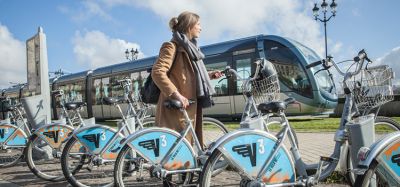Intelligent Transport Conference Speaker’s Interview: Professor Aristotelis Naniopoulos
- Like
- Digg
- Del
- Tumblr
- VKontakte
- Buffer
- Love This
- Odnoklassniki
- Meneame
- Blogger
- Amazon
- Yahoo Mail
- Gmail
- AOL
- Newsvine
- HackerNews
- Evernote
- MySpace
- Mail.ru
- Viadeo
- Line
- Comments
- Yummly
- SMS
- Viber
- Telegram
- Subscribe
- Skype
- Facebook Messenger
- Kakao
- LiveJournal
- Yammer
- Edgar
- Fintel
- Mix
- Instapaper
- Copy Link
Posted: 30 October 2017 | Intelligent Transport | No comments yet
With the Intelligent Transport Conference quickly approaching, we sit down with one of its speakers, Professor Aristotelis Naniopoulos, Faculty of Engineering, Aristotle University of Thessaloniki, to find out what he will be speaking about and what he is looking forward to most at the conference.


What will your presentation focus on and what can delegates expect to learn from what you have to say?
My presentation is part of the ‘Winning over the consumer to trust MaaS’ session.
I will focus on how users and representatives of the stakeholders’ community can be involved in creating innovations to make public transport – the backbone of every urban mobility system – more attractive. In particular, the presentation will look at how crowdsourcing and co-creation processes have been employed with the aim of innovation, and produced results in the frame of CIPTEC, a Horizon 2020 EU project.
What would you say has been the biggest step forward in regards to transport technology for your organisation in the last five years?
Car-sharing and ride-sourcing platforms (e.g. Uber), MaaS, driverless vehicles, and Hyperloop systems initiatives.
In your opinion, which public transport organisations do you think are doing the best work to keep abreast of transport developments?
The organisations that seek to adopt and/or develop innovations that result in increased efficiency and customer satisfaction. Organisations that are interested to apply advanced marketing techniques to reveal and attract hidden groups of customers.
What challenges do you think the public transport sector will face in the future concerning how transport technology is utilised?
Sharing economy initiatives (i.e. Uber, Lyft etc.) and MaaS seem to have the potential to transform the modal share in metropolitan areas. Also, according to UITP, automated driverless cars could decrease traffic flow by 80%. These are challenges that the public transport sector should take into consideration for its future strategy, and should start thinking how they could be incorporated into its services, instead of competing with them. The aforementioned approach will most likely be the only way that the public transport sector will remain a significant player in the new evolving urban transport era that seems to follow a more disaggregated form in the future than it used to.
Looking at the conference’s programme, who among your fellow speakers are you most interested to hear from and why?
I am interested to hear from George Hazel about the background to MaaS Scotland, particularly on how they plan to get all stakeholders to work together, because this is a really crucial issue.
Biography
Professor in Transport Systems at the Faculty of Engineering, Aristotle University of Thessaloniki (AUTh). He is currently Director of the Transport Systems Research Group, as well as of the Division of Transportation and Project Management and of the Laboratory of Urban and Regional Planning and Development (UREDLab) of AUTh. He graduated from the departments of Surveying Eng. (1976) and Architecture Eng. (1981) of AUTh. He obtained his M.Sc. Degree in Operational Research at Cranfield Institute of Technology, U.K (1976) and his Ph.D. in Transport (1988), AUTh. Prof. Naniopoulos has participated in more than 50 national and International projects, assigned mainly by EU and acted as a co-ordinator in many of them. He is also the author or co-author of approximately 160 publications in the fields of transport planning, transport economics, freight transport and logistics, public transport, environmental management of transport systems.
Related topics
Multimodality
Related people
Professor Aristotelis Naniopoulos








